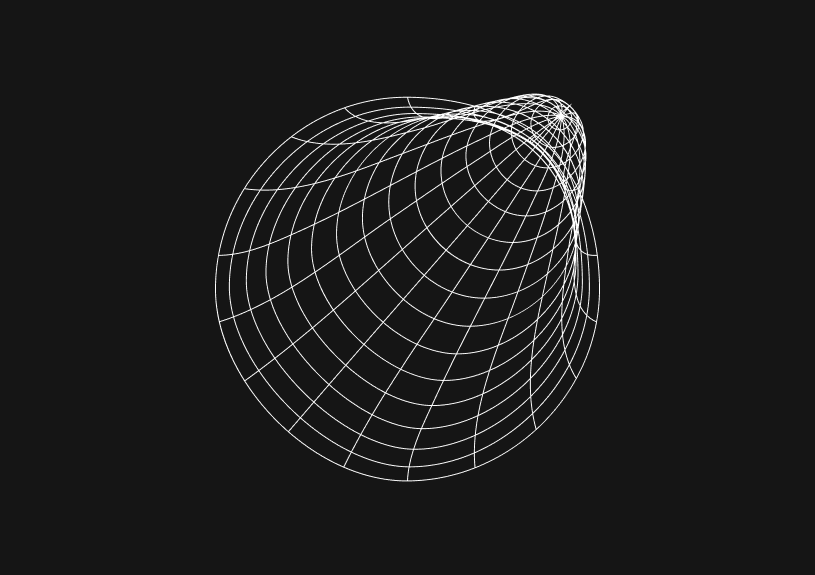
Git Project vs Repository: Understanding the Differences
February 16, 2024
This post covers the differences between a Git repository and a Git project.
Understanding Git repository vs. project
A Git repository serves as the dedicated storage space for your project's code and its version history. It's essentially a directory on your computer that contains a .git folder, where Git tracks all the versions of your project files and maintains the revision history. You can have repositories both locally on your computer and remotely on servers like GitHub, facilitating collaboration and version control.
In contrast, a Git project encompasses the entire scope of your development endeavor. This includes the repository, all branches and commits, tags, and the version control strategy you've chosen to implement. The project is the overarching entity that comprises the collection of files, documentation, workflows, and practices involved in developing and managing the software.
You could ship faster.
Imagine the time you'd save if you never had to build another internal tool, write a SQL report, or manage another admin panel again. Basedash is built by internal tool builders, for internal tool builders. Our mission is to change the way developers work, so you can focus on building your product.

What are the key differences between a Git repository and a project?
The main difference between a Git repository and a project lies in their scope and functionality. A repository focuses on version control, tracking changes to your files in a dedicated space. It is a critical component of a Git project, which represents the comprehensive framework for managing those files within the context of the development process. Projects integrate repositories with broader development practices and collaboration strategies.
Practical example
Consider you are working on a software application. In this scenario, your Git project includes not just the application's code stored in the repository, but also the development workflow practices, such as feature branching or Gitflow, and possibly additional elements like CI/CD pipelines and documentation. The repository is where you actively commit changes, track the evolution of your code, and collaborate with team members through branching and merging.
Key takeaway
The distinction between a Git repository and a project is crucial for effective version control and project management in software development. A repository is the core component where code is stored and versioned, while the project is the wider context that includes the repository, workflows, and collaboration practices. Understanding and leveraging both concepts allows developers to better organize, manage, and collaborate on software projects, reinforcing the effectiveness of their development efforts.
TOC
February 16, 2024
This post covers the differences between a Git repository and a Git project.
Understanding Git repository vs. project
A Git repository serves as the dedicated storage space for your project's code and its version history. It's essentially a directory on your computer that contains a .git folder, where Git tracks all the versions of your project files and maintains the revision history. You can have repositories both locally on your computer and remotely on servers like GitHub, facilitating collaboration and version control.
In contrast, a Git project encompasses the entire scope of your development endeavor. This includes the repository, all branches and commits, tags, and the version control strategy you've chosen to implement. The project is the overarching entity that comprises the collection of files, documentation, workflows, and practices involved in developing and managing the software.
You could ship faster.
Imagine the time you'd save if you never had to build another internal tool, write a SQL report, or manage another admin panel again. Basedash is built by internal tool builders, for internal tool builders. Our mission is to change the way developers work, so you can focus on building your product.

What are the key differences between a Git repository and a project?
The main difference between a Git repository and a project lies in their scope and functionality. A repository focuses on version control, tracking changes to your files in a dedicated space. It is a critical component of a Git project, which represents the comprehensive framework for managing those files within the context of the development process. Projects integrate repositories with broader development practices and collaboration strategies.
Practical example
Consider you are working on a software application. In this scenario, your Git project includes not just the application's code stored in the repository, but also the development workflow practices, such as feature branching or Gitflow, and possibly additional elements like CI/CD pipelines and documentation. The repository is where you actively commit changes, track the evolution of your code, and collaborate with team members through branching and merging.
Key takeaway
The distinction between a Git repository and a project is crucial for effective version control and project management in software development. A repository is the core component where code is stored and versioned, while the project is the wider context that includes the repository, workflows, and collaboration practices. Understanding and leveraging both concepts allows developers to better organize, manage, and collaborate on software projects, reinforcing the effectiveness of their development efforts.
February 16, 2024
This post covers the differences between a Git repository and a Git project.
Understanding Git repository vs. project
A Git repository serves as the dedicated storage space for your project's code and its version history. It's essentially a directory on your computer that contains a .git folder, where Git tracks all the versions of your project files and maintains the revision history. You can have repositories both locally on your computer and remotely on servers like GitHub, facilitating collaboration and version control.
In contrast, a Git project encompasses the entire scope of your development endeavor. This includes the repository, all branches and commits, tags, and the version control strategy you've chosen to implement. The project is the overarching entity that comprises the collection of files, documentation, workflows, and practices involved in developing and managing the software.
You could ship faster.
Imagine the time you'd save if you never had to build another internal tool, write a SQL report, or manage another admin panel again. Basedash is built by internal tool builders, for internal tool builders. Our mission is to change the way developers work, so you can focus on building your product.

What are the key differences between a Git repository and a project?
The main difference between a Git repository and a project lies in their scope and functionality. A repository focuses on version control, tracking changes to your files in a dedicated space. It is a critical component of a Git project, which represents the comprehensive framework for managing those files within the context of the development process. Projects integrate repositories with broader development practices and collaboration strategies.
Practical example
Consider you are working on a software application. In this scenario, your Git project includes not just the application's code stored in the repository, but also the development workflow practices, such as feature branching or Gitflow, and possibly additional elements like CI/CD pipelines and documentation. The repository is where you actively commit changes, track the evolution of your code, and collaborate with team members through branching and merging.
Key takeaway
The distinction between a Git repository and a project is crucial for effective version control and project management in software development. A repository is the core component where code is stored and versioned, while the project is the wider context that includes the repository, workflows, and collaboration practices. Understanding and leveraging both concepts allows developers to better organize, manage, and collaborate on software projects, reinforcing the effectiveness of their development efforts.
What is Basedash?
What is Basedash?
What is Basedash?
Ship faster, worry less with Basedash
Ship faster, worry less with Basedash
Ship faster, worry less with Basedash
You're busy enough with product work to be weighed down building, maintaining, scoping and developing internal apps and admin panels. Forget all of that, and give your team the admin panel that you don't have to build. Launch in less time than it takes to run a standup.
You're busy enough with product work to be weighed down building, maintaining, scoping and developing internal apps and admin panels. Forget all of that, and give your team the admin panel that you don't have to build. Launch in less time than it takes to run a standup.
You're busy enough with product work to be weighed down building, maintaining, scoping and developing internal apps and admin panels. Forget all of that, and give your team the admin panel that you don't have to build. Launch in less time than it takes to run a standup.




Dashboards and charts
Edit data, create records, oversee how your product is running without the need to build or manage custom software.
USER CRM
ADMIN PANEL
SQL COMPOSER WITH AI

Related posts
Related posts
Related posts



How to Center a Table in HTML with CSS
Jeremy Sarchet



Adjusting HTML Table Column Width for Better Design
Robert Cooper



How to Link Multiple CSS Stylesheets in HTML
Robert Cooper



Mastering HTML Table Inline Styling: A Guide
Max Musing



HTML Multiple Style Attributes: A Quick Guide
Max Musing



How to Set HTML Table Width for Responsive Design
Max Musing
